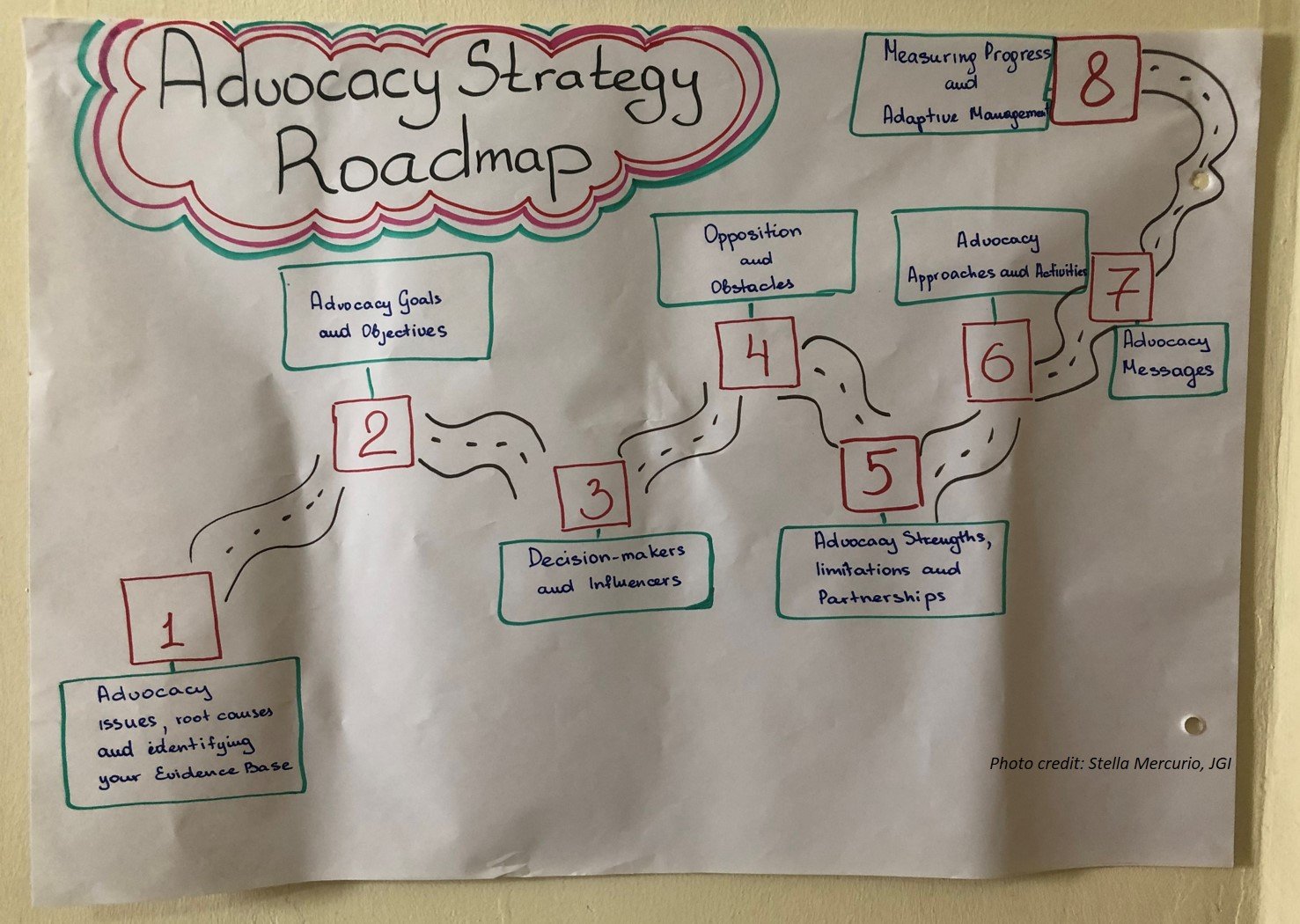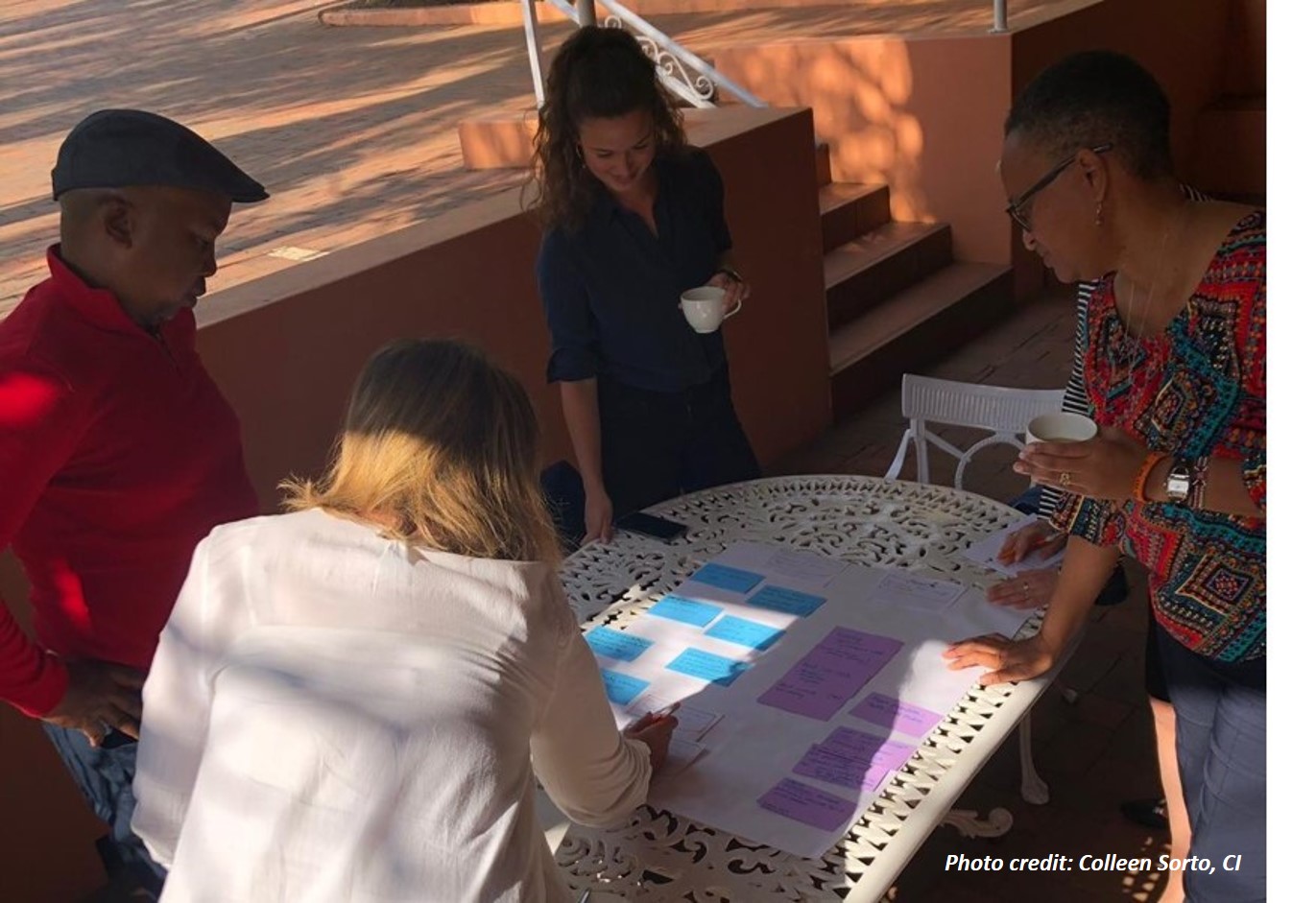 A good advocacy strategy is an important component of a project and key to its success. Advocacy can help foster the uptake of project recommendations leading to a change in practice or the lack of it. Advocacy is important in ensuring that proposed actions are taken up by stakeholders and in influencing decision making to support the development of appropriate policies.
A good advocacy strategy is an important component of a project and key to its success. Advocacy can help foster the uptake of project recommendations leading to a change in practice or the lack of it. Advocacy is important in ensuring that proposed actions are taken up by stakeholders and in influencing decision making to support the development of appropriate policies.
The Africa Biodiversity Collaborative Group (ABCG) is strengthening its advocacy strategy planning in its Freshwater conservation (FW) and Water, Sanitation and Hygiene (WASH) integration activity. Led by ABCG members Conservation International and the Jane Goodall Institute, this activity is expected to enable project teams scale-up their work through influencing key stakeholders and local government in adopting FW-WASH best practices and in the development of appropriate policies that improve human health and freshwater conservation.
Freshwater ecosystems are the very foundation upon which the planet depends on. These ecosystems provide clean water to the world, among other critical services. Unfortunately, these ecosystems in many parts of Africa are facing increasing threats and pressures. Population growth, poorly-planned infrastructure development, urbanization and climate change are some of the stresses on freshwater biodiversity. Many areas of Africa lack the supply and provision of clean water, sanitation and hygiene that are also central to the functioning of a healthy and vibrant ecosystem.
Global initiatives, such as the Sustainable Development Goal 6, recognize the need for clean water and sanitation for all people. In addressing the inter-rated challenges of freshwater ecosystem conservation and WASH issues, ABCG has been working on the integration of FW-WASH to reduce watershed degradation and pollution, and thereby contributing to the conservation of freshwater ecosystems, improving efficient use of diminishing water resources and improving human health.
Since 2015, ABCG members Conservation International its affiliate Conservation South Africa, and the Jane Goodall Institute in Uganda have been piloting projects on FW-WASH integration. In South Africa, the team has been working in Alfred Nzo District Municipality of South Africa’s Eastern Cape Province, whereas in Uganda they have been working in the local villages in the Albertine rift region of Hoima and Masindi Districts, also known as the Budongo-Bugoma Corridor.
Over the last 3 years, the project has made great strides in building the capacity of local communities in Uganda and South Africa to protect and restore freshwater sources and in improving sanitation practices. “In this current phase (2019-2020) of the project we are trying to understand what we are doing on the ground as conservation activities, aimed at improving human health through the protection of freshwater sources, with structures and governance that can support and enable the long term protection of this precious resource for people and nature,” says Colleen Sorto, Director, Development Partnerships – Conservation International / Task Lead, ABCG FW-WASH Integration.
In July 2019, project team members from Uganda and South Africa took part in a four-day advocacy strategy planning training in Durban, South Africa and Kampala, Uganda respectively. ABCG partnered with IRC, a Dutch-based WASH NGO, to adapt their advocacy training materials into a Training-of-Trainers Methodology for projects that integrate freshwater conservation and WASH.
Elynn Walter, International Advocacy Expert / Lead US Partnerships at IRC, offers, “the ABCG project is building on the field experiences gathered to develop its advocacy strategies in order to better influence policy, funding and planning decisions”.
“Advocacy is meant to support already existing work and is not meant to stand out alone. Advocacy is borne from existing work as a tool to allow greater impact on the existing work and on a larger scale.”
An area that at often times is not well defined and outlined in programmatic work, the advocacy training provided team members the opportunity to review and create their advocacy strategies making them more efficient. Participants learned how to better engage with stakeholders in order to influence them towards the adoption of integrated FW-WASH practices. They also learned how to relay messages in a more strategic and influential manner.
While advocating, “often times you only have 30 seconds of someone’s time, know what to ask and use that time wisely,” Elynn Walter.
Through the use of advocacy, ABCG intends to advance the adoption of FW-WASH approaches that are critical for the health of humans and freshwater conservation.
Click below to watch ABCG project members and partners speak about advocacy strategy planning for FW-WASH approaches:



Add a Comment